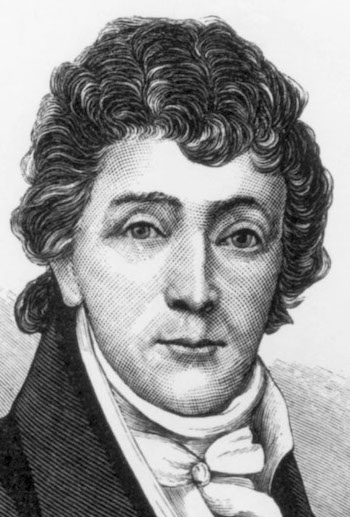Francis Scott Key is widely recognized as the man behind the National Anthem of the United States, 'The Star-Spangled Banner.' However, his life and beliefs go far beyond the creation of the country's most iconic song. In this blog post, we will dive into the life and ideological beliefs of Francis Scott Key and how he has become a symbol of American patriotism.

Early Life of Francis Scott Key
Francis Scott Key was born on August 1, 1779, in Frederick County, Maryland. He came from a family of wealthy landowners who had a significant impact on Maryland's history. His father, John Ross Key, was a judge and served in the Continental Army during the American Revolution. Key's mother, Ann Phoebe Penn Dagworthy Charlton Key, was the daughter of a wealthy plantation owner.
Key received his education at St. John’s College in Annapolis and went on to study law under his uncle, Philip Barton Key. He then established his own law practice in Georgetown, D.C., where he became a prominent lawyer.
Key's Ideological Beliefs and Patriotism
Despite being born into a prosperous family, Key held strong beliefs in the value of hard work and the importance of patriotism. As a devout Christian, he believed in the principles of justice and fairness for all people, regardless of race or social class. Key was also passionate about the ideas of democracy and federalism.
Francis Scott Key's patriotism was evident in his involvement in the War of 1812. During the war, he served as a lieutenant in the Georgetown field artillery in the defense of Washington, D.C. He later volunteered to negotiate a prisoner exchange with the British, where he was held captive on a ship during the Battle of Fort McHenry.
It was during this time that Key wrote the poem that would become the National Anthem, 'The Star-Spangled Banner.' The poem was inspired by the sight of the American flag still flying over Fort McHenry after a night of heavy bombardment by the British. It would later be set to music and officially recognized as the National Anthem by Congress in 1931.
FSK Facing Controversy
Although Francis Scott Key is celebrated as a symbol of American patriotism, his life has not been without controversy. Key's view on slavery, in particular, has been called into question.
Key was a slave owner and defended the practice of slavery in court. In 1833, he prosecuted Reuben Crandall, a white man who was advocating for the abolition of slavery in Washington, D.C., and was charged with inciting a slave rebellion. The case was eventually dismissed, but Key's involvement in the prosecution has cast a shadow over his legacy.
Furthermore, in the third stanza of 'The Star-Spangled Banner,' Key writes about the "hireling and slave" who fought for the British during the War of 1812. Some interpret this line as derogatory towards Black Americans who fought for the British, while others argue that it was a reference to the British practice of impressment.
Conclusion
Francis Scott Key's life and legacy are complex, and his contributions to American history are vast. His belief in American patriotism and principles of justice and fairness are worthy of admiration, but his views on slavery and involvement in its defense cannot be ignored.
Despite the controversy, 'The Star-Spangled Banner' remains a powerful symbol of American unity and patriotism. As we continue to reflect on the history of our nation, it is important to examine figures like Francis Scott Key in their entirety, acknowledging their flaws while recognizing their contributions.